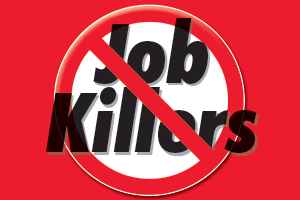It’s important for employers to keep in mind that California has its own set of rules when it comes to joint-employer liability.
A recent top story discussed the proposed rule recently announced by the National Labor Relations Board (NLRB), which would change the standard for determining joint-employer status under the National Labor Relations Act (NLRA). As a reminder, the NLRA covers all employers involved in interstate commerce (subject to certain jurisdictional limits), except airlines, railroads, agricultural operations and government entities, which are governed by other federal or state laws (i.e., the Railway Labor Act, the California Agricultural Labor Relations Act, etc.).
In California, different tests may be applied for determining if there is a joint-employer relationship depending on the legal issue—such as wage-and-hour liability, sexual harassment, or coverage and responsibilities under the Family Medical Leave Act and the California Family Rights Act.
The Industrial Welfare Commission and the California Supreme Court adopted a broad definition of joint employer that focuses on the employer’s exercise of control over wages, hours or working conditions.
In a recent joint-employer liability case (Curry v. Equilon Enterprises, LLC, 23 Cal.App.5th 289 (2018)), a California appellate court held that a company leasing its service station to an operator cannot be held liable as a joint employer for wage-and-hour claims of the operator’s employees. Because there was a clear distinction between the company leasing the service station and the operators running the service station, the appellate court found that the company leasing the service station had no involvement in the station’s daily operations and no control over the wages, hours and working conditions of the operator’s employees.
While the issue of the right to control is often a key test in determining joint-employer liability, California businesses that use staffing agencies or other labor contractors also may be held strictly liable for wage-and-hour violations regardless of who exercises control over the workers. California Labor Code Section 2810.3 holds companies accountable for wage-and-hour violations when they use staffing agencies or other labor contractors to supply workers. California companies also can be held legally accountable for workers supplied by labor contractors for the payment of wages, failure to secure valid workers’ compensation coverage and violation of specified whistleblower protections.
The California Division of Labor Standards Enforcement recently announced that it cited a California restaurant chain for underpaying 559 subcontracted janitorial workers, fining the chain more than $4.57 million in damages and penalties. Employers that use staffing agencies or other subcontractors to supply workers should be cautious and evaluate the agency or subcontractor to determine that they comply with California’s labor laws.
Best Practices
- Review all existing contracts for labor or services to determine what contracts may fall within the scope of “usual course of business.” For those contracts that qualify, contact those contractors to obtain assurances of their labor and employment compliance.
- Consider including legal protections for wage-and-hour violations, workers’ compensation coverage and claims involving retaliation for protected conduct—as well as duty to defend and/or indemnification provisions, in new and existing contracts.
CalChamber members can read more about Joint-Employer Liability in the HR Library. Not a member? See how CalChamber can help you.
Staff Contact: Bianca Saad



